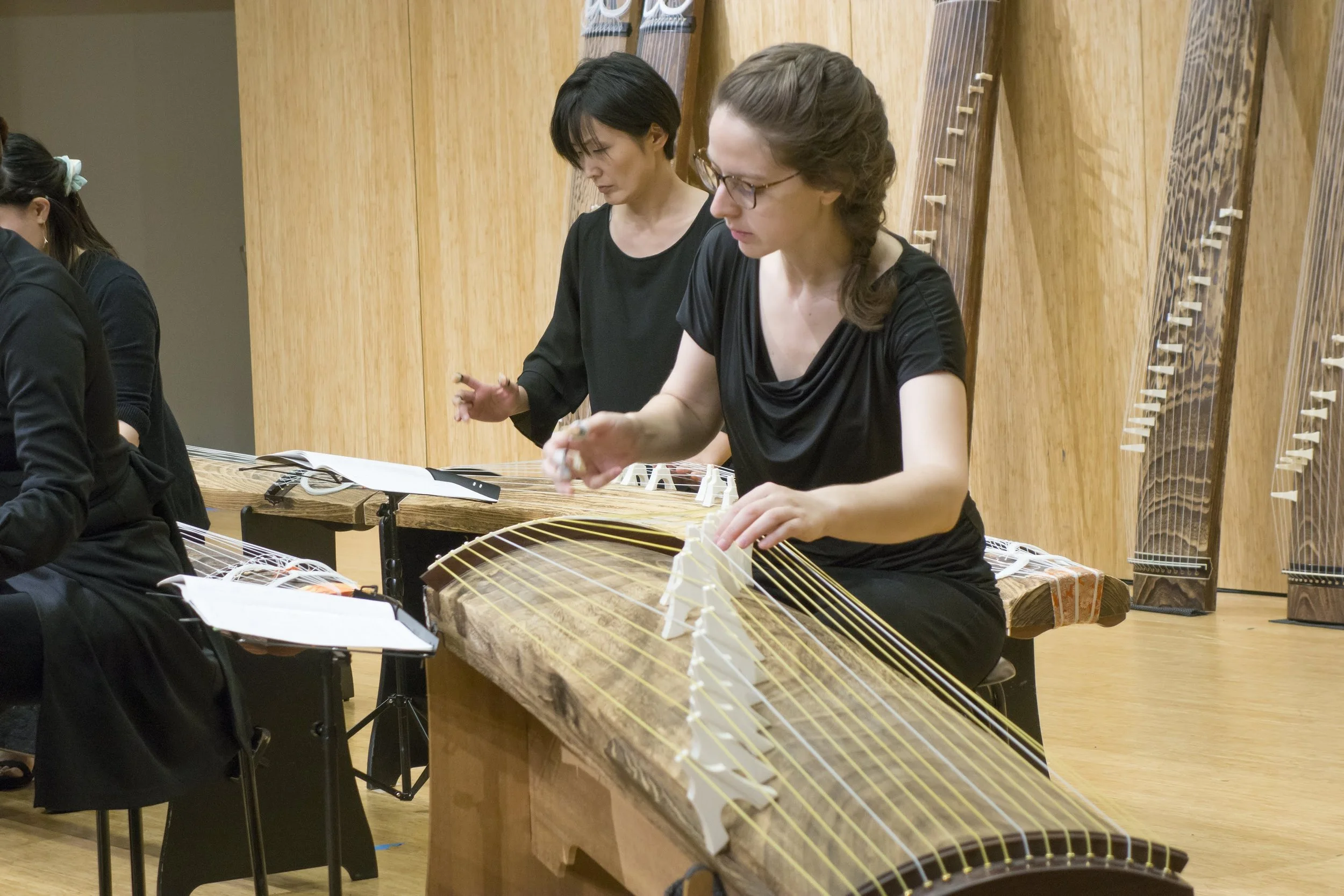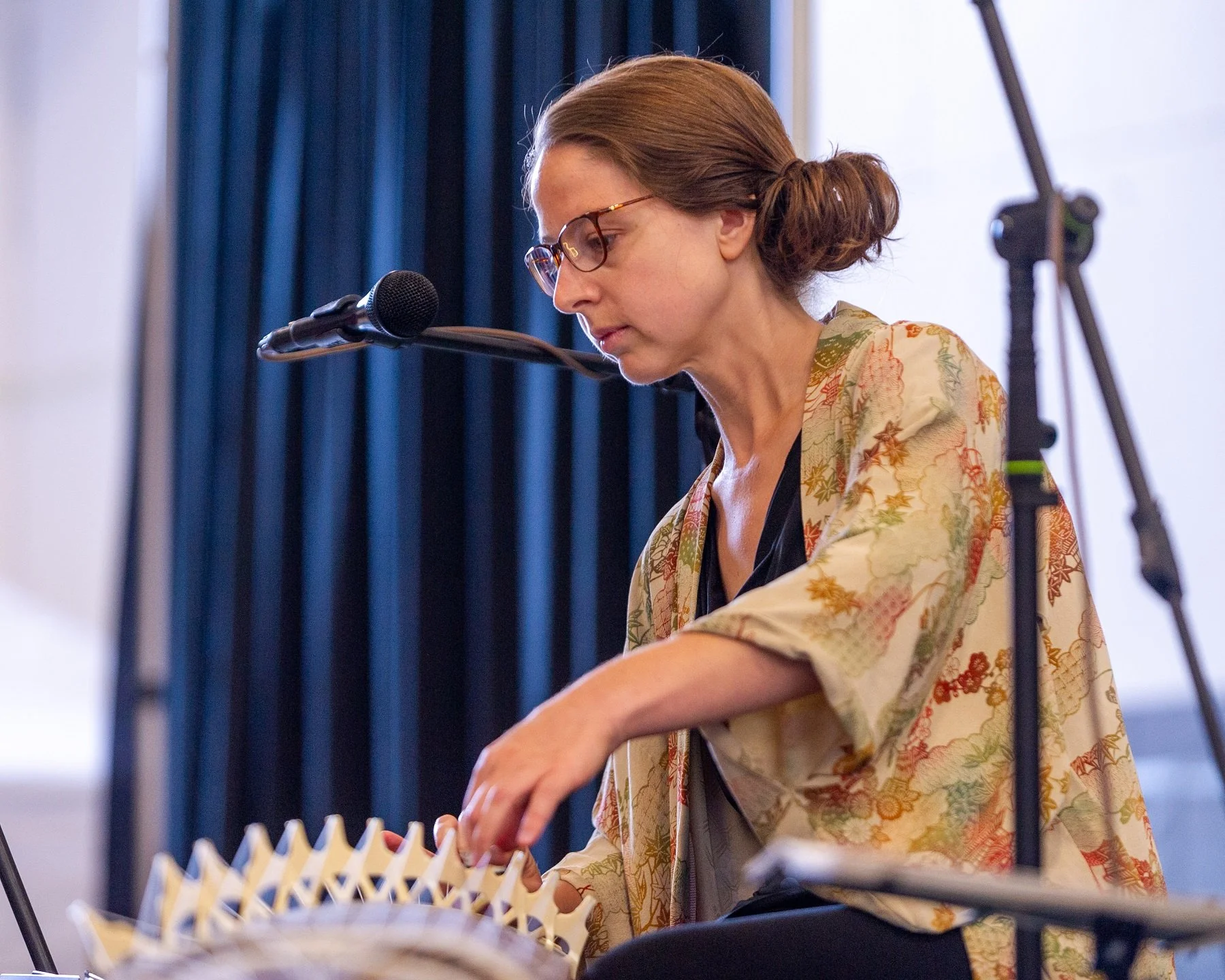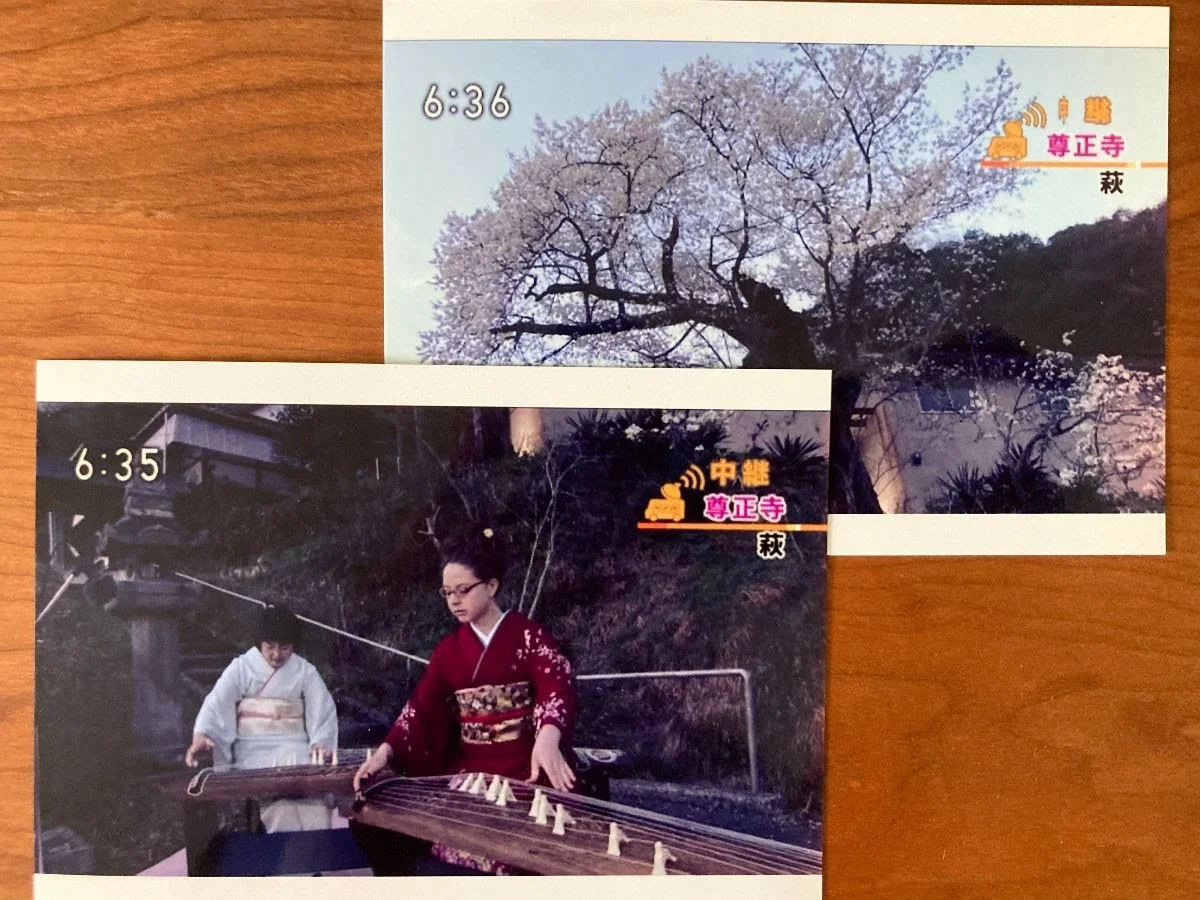
Player spotlight:
Amy Shoemaker
My Koto Community
I first crossed paths with koto on the stage of a community center in Japan. I was living in Tamagawa, a rural town north of Hagi, Yamaguchi teaching English with the JET Program. My supervisor always found ways to include me in community events and on this occasion I was volunteering at the annual Lifelong Learning Presentation. It’s an all-day event where local hobby groups perform on stage for fellow members of the town. One of those performances happened to be koto. From the side of the stage, I listened to the group perform Christmas music wearing Santa hats. As I helped reset the stage, I complimented the performers in my limited Japanese and before I knew it, I was taking koto lessons.
Tsuda-san, the group’s teacher, happened to live a short walk from my house. She gave me my first, and current, pair of tsume, lent me a koto, and taught me koto basics with songs like Sakura and Kojo no Tsuki. She was strict but kind, and our lessons always included tea and snacks. Tsuda-san let me join the ensemble group, invited me to her performances at various temples, and often invited me to dinner with her old classmates. Tsuda-san taught me how the same song can be different every time based on our feelings. My fondest memories are performing at Daishoin Temple in Hagi and for a local TV segment beneath a nearly 400 year old sakura tree.
I bought a koto before returning to the US, hoping I could continue practicing. When I moved north of LA I was optimistic about finding a koto club; however, the local group I contacted discouraged me from joining since they thought traffic would be too heavy from my house to the practice location. I tried Skype lessons with Tsuda-san, but pre-pandemic video call quality wasn’t quite that advanced yet, so we ended up just chatting. My koto sat in its case, neglected for 4 years until I made the decision to move to Portland. As I packed up my car with my koto, I was sad to think I’d missed out on joining groups in California and thought it was unlikely I’d be able to play in Oregon.
However, to my surprise, a quick internet search led me to Oregon Koto-Kai, and as soon as I moved, I reached out to Mitsuki. She set up a lesson for me immediately, and invited me to come and watch the Summer Recital at Epworth Church. The Sawai playing style that Mitsuki taught me was quite different from the Miyagi style Tsuda-san introduced me to. Mitsuki had endless patience as I learned - and continue to learn - these new techniques. Her teaching style was so clear and fun, and she used many strategies to help me understand how to get the best sound out of the koto. I soon joined Oregon Koto-Kai players at concerts but I was so out of practice that I could no longer sight read music quickly. The first song I played at the fall concert, Yume no Wa (Hikaru Sawai) was completely by memory.
Mitsuki continued to create spaces and opportunities to perform for myself and other koto players. I’ve had so much fun playing at a variety of venues, for a number of events and meeting so many people along the way who’ve never even heard of koto before. While living in Japan, I had the chance to perform in concerts maybe 2-4 times a year. But with Mitsuki’s encouragement and support, I’ve now joined over 100 performances with Oregon Koto-Kai. A few years after moving to Portland, Tsuda-san unexpectedly passed away. I returned to Japan to play koto music in her honor with the koto ensemble group she led. When I play koto, I feel a connection to Tsuda-san, and to the teachers who came before her. I also feel a present connection to my current teacher and other members of Oregon Koto-Kai as we make music together.
When I offhandedly complemented the koto group in Japan, I had no idea the ripple effect it would have on my life. Koto brings me a lot of joy, and I’m so grateful to have met Mitsuki, who continues to support me and guide me in my quest to create beautiful and dynamic sounds on this unique instrument. For me, koto is community, and I value the connection I share with others in the past and present. I want to continue creating opportunities for individuals in our community to learn about koto, and I dream of hosting a koto camp for young students in the near future. I will continue to learn and grow, and one day I hope to become a teacher half as talented as Mitsuki so we can share this music with the next generation.
Pictured: Amy and Tsuda-san performing an arranged special duo version of Sakura for their TV debut.




